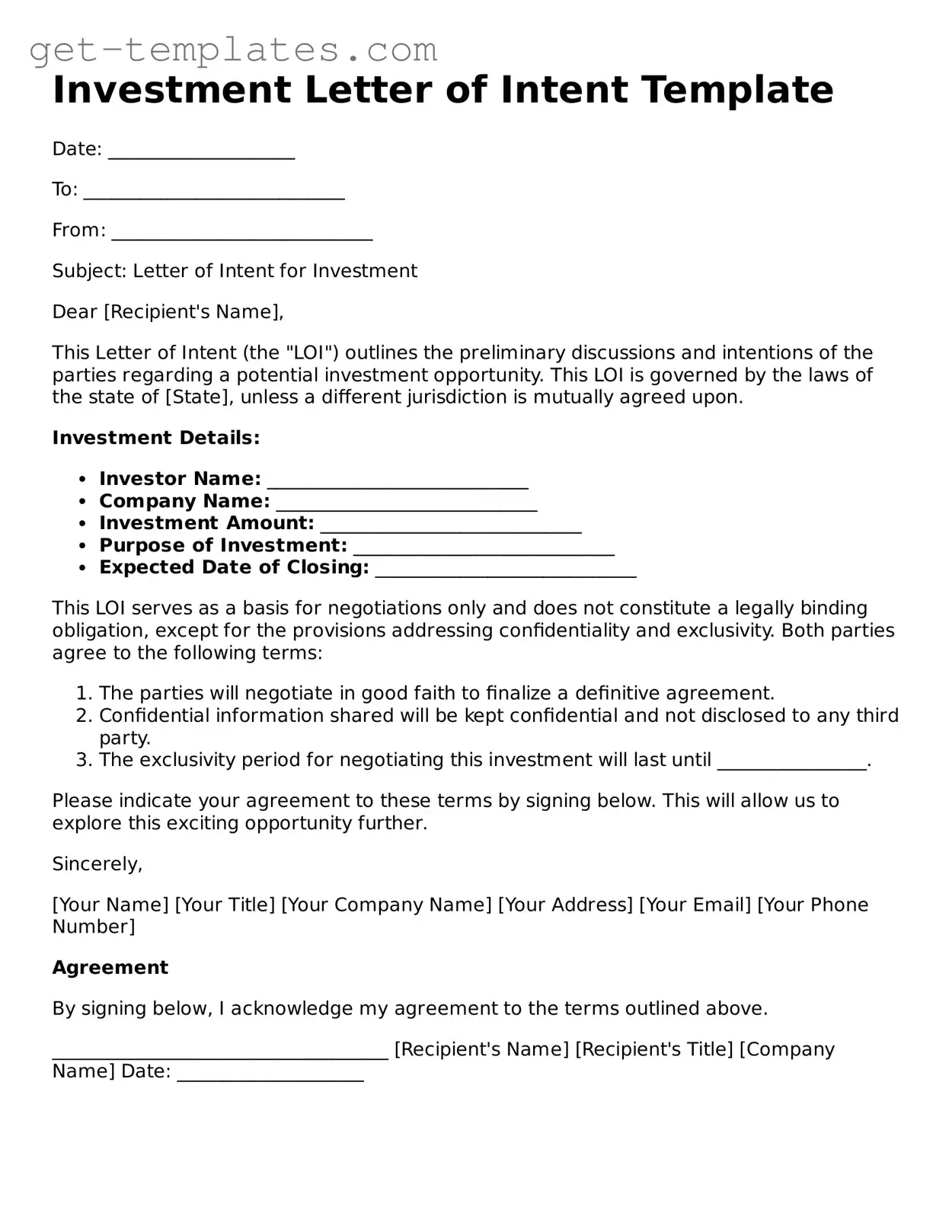Attorney-Approved Investment Letter of Intent Form
An Investment Letter of Intent (LOI) is a document that outlines the preliminary understanding between parties regarding a potential investment. This form serves as a crucial step in the investment process, establishing the terms and conditions that will guide further negotiations. By clarifying intentions, the LOI helps to foster transparency and align expectations between investors and investees.
Get Document Online

Attorney-Approved Investment Letter of Intent Form
Get Document Online
You’re halfway through — finish the form
Finish Investment Letter of Intent online — edit, save, download made easy.
Get Document Online
or
⇓ PDF Form
